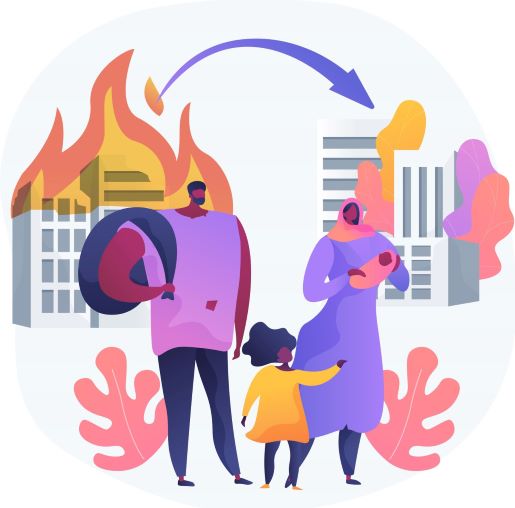Time for IRCC to have a Standardized Response to Adverse Country Events
- by Ronalee Carey Law
February 2023

On February 23rd, IRCC announced new measures to support Iranian temporary residents in Canada. The measures include:
- Making it easier to extend temporary status in Canada (as visitors, workers, or students)
- Creation of an open work permit for Iranians in Canada
- Waiving processing fees
- Processing applications on a priority basis
For Canadians and permanent residents of Canada living in Iran, IRCC will waive processing fees for new documents.
These measures are laudable. So is the program for Ukrainians, which allows applicants to come to Canada and work for up to three years. Canada also continues to welcome Afghan refugees, including the most recent arrival for the private refugee sponsorship group of which I am a member.
What is concerning is that these programs seem to be motivated by politics rather than any coherent strategy. Helping Iranians provides the government with excellent media coverage, but the program is not actually doing anything to help people in Iran. In contrast to the program for Ukrainians, the program for Iranians does not permit a visa to allow anyone to come to Canada. The special measures are only for those already in the country to help them stay rather than return to Iran. Further, for both Iranians and Ukrainians, the measures are temporary. I’ve given several presentations to Ukrainian clients of Ottawa settlement agencies in the last few weeks. The options are bleak – Express Entry scores are highly competitive, and especially for those in Ontario, there are limited options for those without a qualifying job offer. Unless the Canadian government develops a special immigration stream or extends the three-year work permits, many Ukrainians will find they must return to their devastated country rather than continue living in Canada.
There are always going to be adverse events in other countries. After the recent earthquake in Turkey, there were calls for the government to provide an immigration stream for those affected to be reunited with Canadian family members. Unfortunately, Canada’s family reunification program is limited to parents and grandparents (on a lottery basis), spouses and partners, and dependent children under the age of 22. You can’t sponsor a sibling, a cousin, or a niece or nephew, despite how dire their situation is in their country of origin, except in very rare circumstances.
Rather than lurching from world crisis to world crisis and treating individuals from various countries differently, I would prefer IRCC develop a coherent strategy for dealing with those who want to come to Canada or bring people to Canada. For example, the government could create a visa program for family members of Canadian citizens from designated countries, then quickly add a country to the list in the case of an outbreak of war or a natural disaster. Then, so long as the country remains on the list, the status in Canada could be renewed. Undoubtedly this would lead to more refugee claims and applications for humanitarian and compassionate consideration, but I think Canadians would be willing to accommodate a few extra applications. Plus, recent statistics show that fewer permanent residents are applying for citizenship in Canada (down to 45.7%); we can afford to add a few more Canadians.

